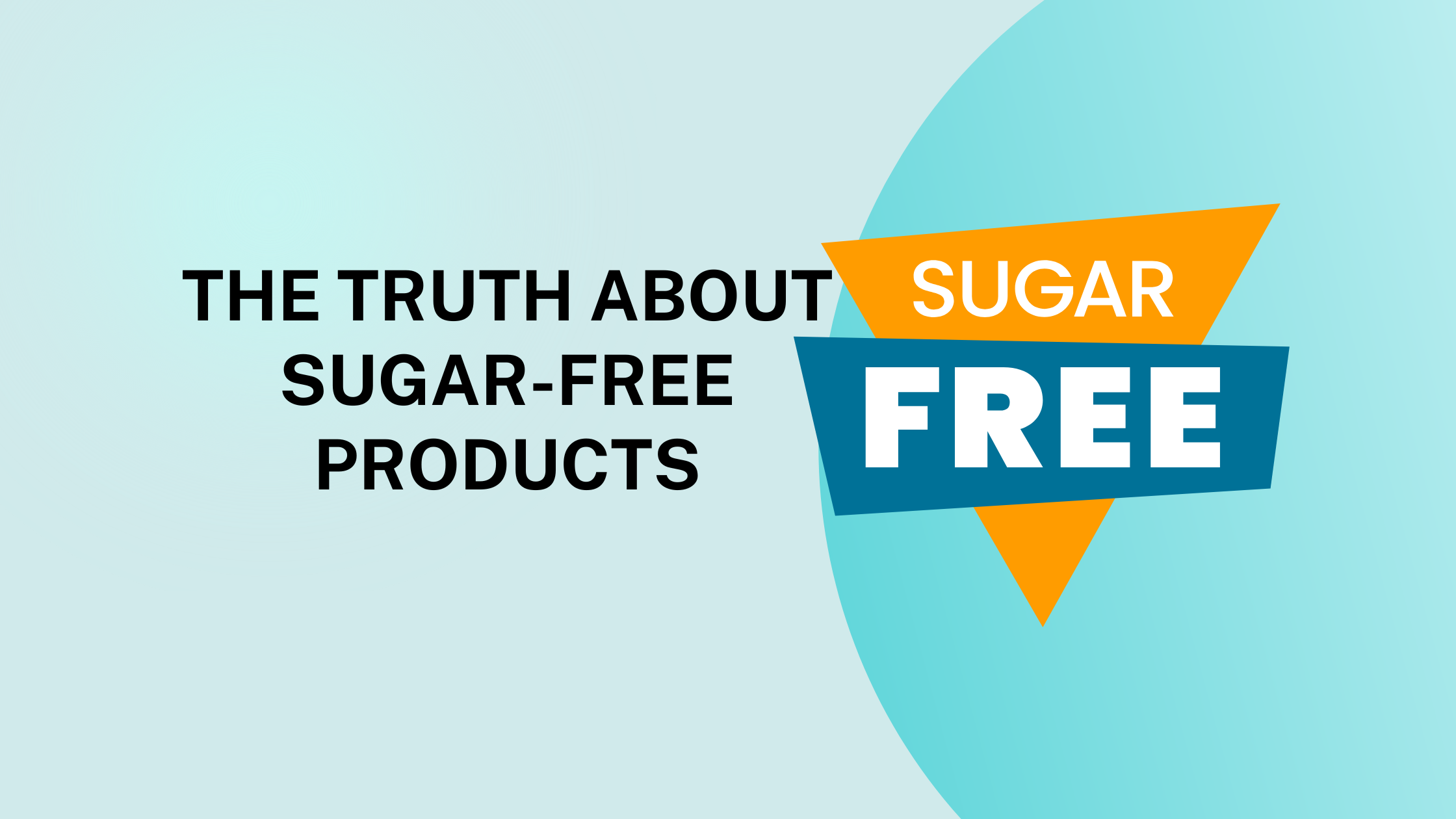Introduction
Sugar consumption has become a major health concern in India and worldwide, with excessive intake linked to diabetes, obesity, and heart disease. The average Indian consumes nearly double the recommended daily sugar limit set by the World Health Organization. As awareness grows, many are turning to sugar-free alternatives like stevia, erythritol, and artificial sweeteners. These products promise benefits such as better blood sugar control, weight management, and improved dental health. But are they truly a healthier choice? This article examines the reality behind sugar-free products, separating facts from myths to help you make informed decisions.
Understanding “Sugar-Free”
The term “sugar-free” can be misleading. While it means the product contains no added table sugar (sucrose), it may still include other sweeteners—both natural and artificial. Regulatory bodies like FSSAI in India and the FDA in the U.S. define “sugar-free” as containing less than 0.5 grams of sugar per serving. However, not all sugar-free products are calorie-free or completely harmless. Some use natural alternatives like stevia or monk fruit, which are generally safer, while others rely on artificial sweeteners like aspartame or sucralose, which have sparked health debates. Always check labels to understand what you’re consuming.
Common Sugar-Free Alternatives
The market offers various sugar-free options, from sweeteners to snacks and beverages. Natural substitutes like stevia and erythritol are gaining popularity due to their minimal impact on blood sugar and fewer side effects. Artificial sweeteners, such as aspartame (found in diet sodas) and saccharin, provide zero calories but come with potential health concerns. Sugar-free snacks, including protein bars and dark chocolate, cater to those reducing sugar intake, but some may still contain unhealthy fats or additives. Understanding these differences helps in making better dietary choices.
Health Benefits of Going Sugar-Free
Reducing sugar intake through sugar-free products can offer several advantages, especially for individuals with diabetes or those aiming for weight loss. These alternatives help stabilize blood sugar levels, reduce calorie intake, and lower the risk of cavities. Studies suggest that replacing sugary foods with sugar-free options can aid in short-term weight management and improve metabolic health. However, these benefits depend on choosing the right products and consuming them in moderation.
Potential Risks and Drawbacks
Despite their benefits, sugar-free products are not without risks. Artificial sweeteners may disrupt gut bacteria, leading to digestive issues like bloating or diarrhea. Some studies indicate they could increase sugar cravings, potentially undermining weight loss efforts. Long-term safety remains under debate, with some sweeteners linked to headaches or other adverse effects. Additionally, many sugar-free processed foods contain unhealthy additives, proving that “sugar-free” doesn’t always mean “healthy.”
Sugar-Free vs. Natural Sugars vs. Artificial Sweeteners
Choosing between sugar-free alternatives, natural sugars (like honey or jaggery), and artificial sweeteners depends on individual health goals. Natural sweeteners have a lower glycemic impact than refined sugar but still contain calories. Artificial options provide sweetness without calories but may carry health risks. For most people, natural sugar-free substitutes like stevia or erythritol strike the best balance between safety and functionality.
What Health Experts Say
Doctors and nutritionists generally agree that sugar-free products can benefit diabetics and those reducing calorie intake. However, they caution against overconsumption, particularly of artificial sweeteners, which may have unintended health effects. Experts emphasize moderation and recommend whole, unprocessed foods as the best way to reduce sugar dependency.
Sugar-Free and Weight Loss: Does It Work?
Switching to sugar-free products can support weight loss if done correctly—replacing high-sugar items without compensating with extra calories. However, relying solely on these products without addressing overall dietary habits may not yield significant results. Sustainable weight loss involves balanced eating and lifestyle changes, not just sugar substitutes.
Top Sugar-Free Products to Consider
For those exploring sugar-free options, some standout choices include stevia-based sweeteners, sugar-free protein bars, and beverages like herbal teas or infused water. Reading ingredient lists and opting for minimally processed options ensures you reap the benefits without unnecessary risks.
Final Thoughts
Sugar-free products can be a useful tool for managing sugar intake, but they are not a cure-all. Natural alternatives like stevia and erythritol are safer choices, while artificial sweeteners should be used sparingly. A balanced approach—focusing on whole foods and mindful eating—remains the healthiest strategy for long-term well-being.
By understanding the pros and cons, you can make smarter choices that align with your health goals. Whether for medical reasons or personal preference, going sugar-free can be beneficial—if done wisely.

